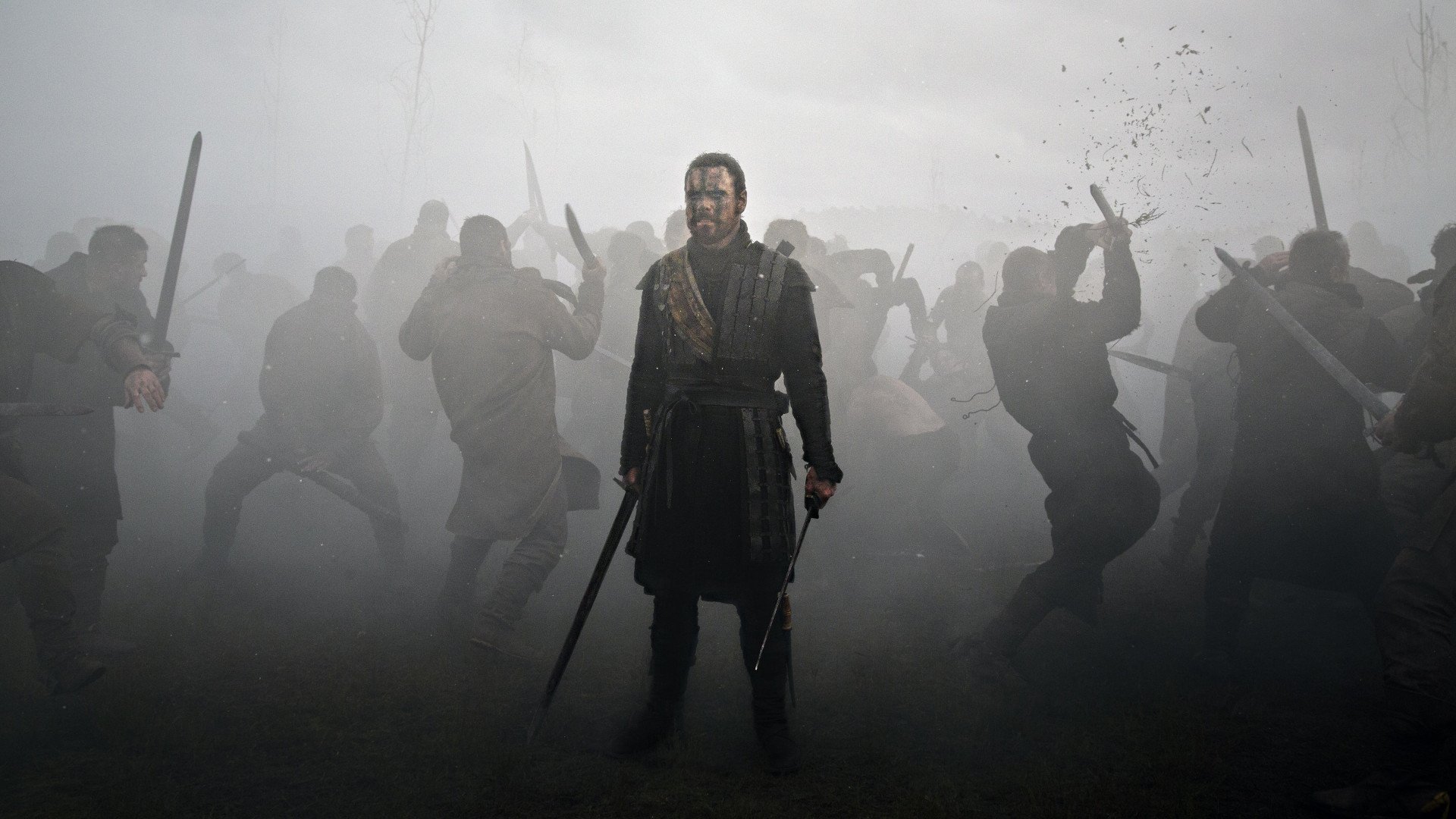Macbeth [2015] is the second feature film from director Justin Kurzel, adapting the well-known Shakespearean stage-play with Michael Fassbender in the titular role alongside Marion Cotillard and Paddy Considine and a handful of other recognizable and wonderful talent.
I am in blood, stepped in so far. This latest adaptation of Shakespeare’s drama is a beautiful thing to behold. There’s a momentum that carries the film from beginning to end, lingering where it counts but never feeling slowed down. The energy of the visuals, of the cast, of the delicious dialogue, all create a version of The Scottish Play that is something glorious and unique from all its predecessors.
So foul and fair a day I have not seen. The first thing to note is the visual display, immediately brought front and center as soon as the film begins. The cinematography is rich in color, expertly composed, and powerfully edited. The color scheme throughout the film, the occasional use of slow motion, and the movement of the camera and the actors from scene to scene are feasts for the eyes. This is a film that wholeheartedly uses its medium to its advantage, painting exceptional art pieces from frame to frame.
O, full of scorpions is my mind. The performances are all mesmerizing and well enough presented. Fassbender’s work is as powerful as it ever is, displaying a wonderfully tragic and confused journey for Macbeth from a man filled with ambition to one tortured by ills of the mind. Cottilard is a strong and striking Lady Macbeth, and her scenes against Fassbender are a joy to behold. The rest of the ensemble performs pitch perfectly, without anyone seeming awkward or out of place. Shakespeare is hard to produce properly, and most of that simply come down to the actors performing the words and meanings behind those words without err. Everyone involved does so here, and satisfying it is.
Tomorrow, and tomorrow, and tomorrow… The downfall, or, at least, the thing that is most noticeable to complain about (and many an audience member has), is that the dialogue can be difficult to comprehend at times. It takes time to tune one’s ear to Shakespeare’s words, as we unfortunately no longer construct our sentences in such rich and delightful sentences as back in the day, and the actors all have decently thick Scottish accents as they should. The rub is in that these rich words are commonly spoken in thick accents which come across fairly mumbled. These characters often time speak out loud to themselves, talking under their breath as any of us would. It creates a more natural and realistic use of the dialogue against what would typically be large and declarative on stage, but I had to ensure subtitles played so that I could fully comprehend each word presented as some would have been missed and others misunderstood. I don’t mind subtitles by any means, and I’m sure after a few more viewings they won’t be necessary, but it’s a thing worth noting.
Rich, beautiful, and mesmerizing from visuals to performances. This film adaptation uses its medium to its advantage to create a stunning, brutal, and engaging Shakespearean tragedy.

